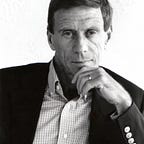After the Protests: Learning from the Sixties
We are approaching a junction. When the protests over the murder of George Floyd subside, what will remain? What, if anything, will change? The Rodney King incident — and the riots following the police acquittal — were thirty years ago. It seems little has changed.
I do not have answers. I do not know what reforms would best work in stemming the tide of police violence, nor do I know how to bring about those reforms. But I do believe there are some lessons — in the form of guiding principles — that we can learn from the sixties. I offer them not out of nostalgia, but because I believe there are valuable lessons to be mined there. The principles I have in mind are three.
Educate ourselves and others. Few people can watch the sickening video of the cop’s knee on George Floyd’s neck and not know that we have a serious problem. But when we think about solutions, we realize we know the symptoms of the disease, but less so its causes and cure.
Some good work has been done, and we need to study it. There is work of the President’s Task Force on 21st Century Policing, created by President Obama in 2014. The NAACP’s Pathways to Police Reform Community Mobilization Toolkit (available in a pdf online) provides an excellent overview of the problem, a variety of solutions, and a blueprint of how to implement those solutions. Beyond decrying the violence, we have to be able to articulate a program of how to end it.
Implementation will be a monumental task. There are 18,000 law enforcement agencies in our country under various state, county, and municipal jurisdictions. One grand federal law cannot fix the problem. Worse, we are currently saddled with a President hostile to police reform and who dog whistles his support of violent and repressive police tactics. His defeat in November is necessary for police reform to move forward.
This monumental task will require monumental effort. This, too, is a lesson from the sixties. While we rightly celebrate King’s “I Have a Dream Speech,” we must remember that the successful March on Washington depended upon such mundane details as buses, bathrooms, and cheese sandwiches for a quarter of a million people. Bayard Rustin and hundreds working under him were the behind-the-scenes heroes of that effort, and without them the march might have been a disaster. Indeed, from Rustin to Ella Baker to thousands whose names few remember, the success of the early Civil Rights Movement rested on long, hard, unexciting work of people who had their eyes on the prize. Victories like the Civil Rights Act of 1964 and the Voting Rights Act of 1965 were built on an army of workers not only protesting in the streets but also knocking on doors, phoning politicians, and cranking duplicating machines in hot offices.
Practice proximity. A couple of years ago I heard a speech given by Bryan Stevenson, the accomplished legal warrior for death-row inmates. He spoke of the necessity of becoming proximate to others. We can truly understand only if we get close to the problems we want to solve. We need to work in the neighborhoods where police too often abuse those they should serve and protect. We need to “ride along” with a cop on a beat and listen to what they have to say. I have no patience for those who write on social media that every person who wears a badge is a murderer. There are damned good cops in this country. There are cops joining the current protests. There are also people in uniforms who do monstrous things. A movement worthy of its cause will try to be inclusive to make real change, not exclusive to maintain its illusion of moral superiority. I find it dispiriting to meet young radicals whose knowledge of society seems based solely on the words of other young radicals. “Abolish the police” is neither a plausible nor a desirable goal. Get proximate.
Keep your eyes on the prize. The phrase, of course, is the title of the famous song of the civil rights movement. It reminds us that in struggling for a better society, the possible distractions are many: the need to express anger, the desire to feel morally superior, the lure of a tribal contest of us versus them. These do not make the world a better place; they divert us from acts that can. There is one prize here: that actions like the George Floyd killing not happen again. That is the only meaningful criterion for action. That is the goal that must guide us.
For the past eight years I have taught college classes at San Quentin Prison, and I have heard there many first-hand horror stories of the criminal justice system, from the cops on the streets to the courts and the prisons. It is a hard fact of life that destroying and hurting can happen rapidly, but building and healing take time. Beginning today, let us educate ourselves, be proximate, and keep our eyes on the prize. Let us honor those who have suffered in the past and prevent similar suffering from happening in the future. The horrors of injustice in our system need are great. Hard work is needed. Let’s get started.
